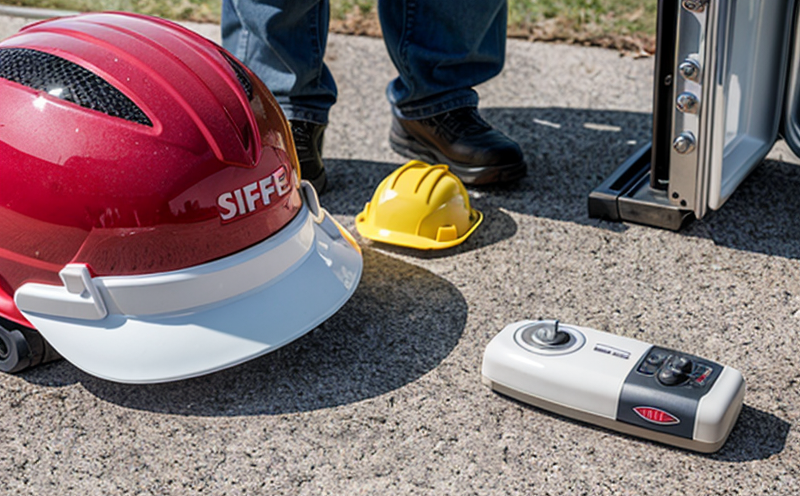ISO 18869 Emergency Fire Pump Testing
The ISO 18869 standard outlines stringent requirements for testing emergency fire pumps used in marine and ship equipment. This service ensures that the pumps meet international safety standards, ensuring they can operate reliably under extreme conditions critical to maritime safety.
Emergency fire pumps are essential components of a ship's fire-fighting system, providing water pressure necessary to extinguish fires on board. These pumps must be capable of operation even in severe weather or during emergencies when the vessel may be listing or heaving. ISO 18869 tests ensure that these pumps can deliver reliable performance under such challenging conditions.
The testing process involves several key steps, including pressure checks, flow rate verification, and endurance testing. During these tests, the pump is subjected to various simulated operating scenarios to assess its reliability and efficiency. Compliance with ISO 18869 ensures that fire pumps meet stringent safety requirements, thereby enhancing maritime safety.
The standard also emphasizes the importance of regular maintenance and inspection of emergency fire pumps. By adhering to this service, ship owners can ensure that their equipment is in top condition, ready for any emergency situation. This proactive approach not only enhances operational efficiency but also significantly reduces the risk of accidents or failures during critical moments.
Compliance with ISO 18869 is mandatory for ships operating under international maritime regulations. Non-compliance can lead to significant penalties and reputational damage, making it crucial for ship owners and operators to ensure their pumps meet these stringent standards.
The testing process involves a series of rigorous checks aimed at verifying the pump's performance under various conditions. These include static pressure tests to check the maximum pressure the pump can deliver, dynamic flow rate checks during simulated operations, and endurance tests to evaluate long-term reliability. By adhering to these protocols, we ensure that our clients' equipment meets international standards for maritime safety.
In addition to testing, this service also includes comprehensive documentation and reporting, providing detailed insights into each test's outcome. This information is invaluable for ship operators in maintaining their compliance with global regulations and ensuring the ongoing reliability of their emergency fire pumps.
Applied Standards
| Standard | Description |
|---|---|
| ISO 18869-1 | Fire pumps for ships—Part 1: General requirements and test methods. |
| ISO 18869-2 | Fire pumps for ships—Part 2: Construction, marking and conformity assessment. |
| ISO 18869-4 | Fire pumps for ships—Part 4: Additional requirements for emergency fire pumps. |
Scope and Methodology
The ISO 18869 standard covers the testing of emergency fire pumps used in marine environments. The scope includes various aspects such as design, construction, marking, and conformity assessment. This service focuses on ensuring that these pumps meet the stringent requirements set out by the standard.
Testing involves a series of checks to verify the pump's performance under different operating conditions. These include static pressure tests, dynamic flow rate checks during simulated operations, and endurance tests for long-term reliability. Each test is conducted in accordance with the specified procedures outlined in ISO 18869.
In addition to testing, this service also includes a comprehensive review of the pump's design and construction. This ensures that all components meet the required standards and are suitable for use in marine environments. The conformity assessment process verifies that the pump complies with all relevant requirements.
The results of these tests provide detailed insights into the pump's performance, reliability, and compliance with international standards. These reports are invaluable for ship owners and operators in maintaining their compliance with global regulations and ensuring the ongoing reliability of their emergency fire pumps.
Benefits
- Ensures compliance with ISO 18869, enhancing maritime safety.
- Guarantees reliable performance under extreme conditions.
- Reduces risks associated with equipment failure during emergencies.
- Improves operational efficiency and reduces maintenance costs.
- Protects against potential penalties for non-compliance.
- Enhances the reputation of ship owners and operators.
- Provides detailed documentation and reporting for ongoing compliance.





